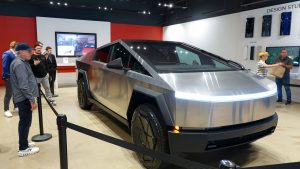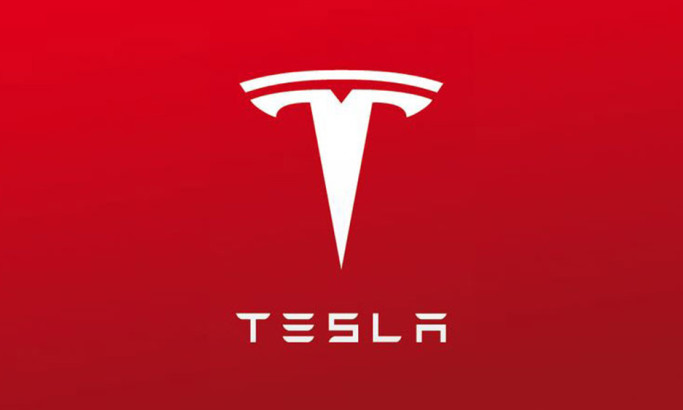In recent years, Tesla has become synonymous with electric cars, revolutionizing the automotive industry with its sleek designs, long-range capabilities, and commitment to sustainability. However, the impact of Tesla’s technology extends far beyond the realm of electric vehicles. From renewable energy solutions to cutting-edge battery technology, Tesla has positioned itself at the forefront of innovation in multiple sectors. This article explores the diverse applications of Tesla’s technology beyond electric cars, examining how the company’s inventions are reshaping industries and driving the transition towards a sustainable future.
Challenges and Opportunities

Despite Tesla’s remarkable progress in diversifying its technology portfolio, the company faces several challenges and opportunities in its quest to drive innovation and sustainability. One of the primary challenges is the need to scale up production and distribution networks to meet the growing demand for its products. Tesla’s ambitious expansion plans, including the construction of new Gigafactories and investment in infrastructure, are essential for addressing this challenge. Moreover, Tesla must navigate regulatory complexities and market dynamics in different regions to ensure the widespread adoption of its technologies. Additionally, as competition intensifies in the renewable energy and battery sectors, Tesla must continue to invest in research and development to maintain its technological edge and stay ahead of rivals.
Renewable Energy Solutions
One of Tesla’s most notable ventures beyond electric cars is its focus on renewable energy solutions. The company’s acquisition of SolarCity in 2016 marked its entry into the solar energy market, enabling customers to harness the power of the sun through solar panels and energy storage systems. Tesla’s solar products, including solar roofs and solar panels coupled with Powerwall batteries, offer homeowners a comprehensive solution for generating and storing clean energy. By integrating solar power generation with energy storage, Tesla aims to reduce reliance on traditional fossil fuels and promote the adoption of sustainable energy sources
Despite these challenges
Tesla also has numerous opportunities to further leverage its technology for positive impact. The increasing global focus on sustainability and climate change presents a significant opportunity for Tesla to expand its market presence and influence. By partnering with governments, utilities, and other stakeholders, Tesla can promote the adoption of renewable energy solutions and accelerate the transition to a low-carbon economy. Furthermore, the rapid advancements in artificial intelligence, automation, and connectivity offer new possibilities for enhancing the efficiency and effectiveness of Tesla’s products and services. By embracing emerging technologies and fostering innovation, Tesla can continue to push the boundaries of what is possible and lead the way towards a cleaner, more sustainable future.
Battery Technology Advancements
Tesla’s advancements in battery technology have far-reaching implications beyond electric vehicles. The company’s development of high-performance lithium-ion batteries has applications in various industries, including renewable energy storage, grid stabilization, and portable electronics. Tesla’s Gigafactories, large-scale manufacturing facilities dedicated to producing batteries, play a crucial role in scaling up production to meet growing demand. Additionally, Tesla’s research into next-generation battery chemistries, such as solid-state batteries, holds the promise of further improving energy density, lifespan, and safety, thereby accelerating the transition to clean energy.
Energy Management Solutions
Beyond individual products, Tesla is also pioneering energy management solutions that optimize the use of renewable energy resources. Through its software platforms, such as Tesla Energy Gateway and Autobidder, the company enables efficient management of energy storage systems and facilitates participation in electricity markets. Tesla’s smart grid technologies empower consumers to maximize the value of their renewable energy assets by dynamically adjusting energy usage and trading surplus electricity. By leveraging data analytics and machine learning algorithms, Tesla is driving innovation in energy management and contributing to the evolution of decentralized energy systems.
Comparative Analysis Table
| Aspect | Tesla | Competitor |
|---|---|---|
| Renewable Energy Solutions | Offers comprehensive solar energy solutions including solar roofs and Powerwall batteries | Competitors offer standalone solar panels without integrated storage solutions |
| Battery Technology | Pioneering advancements in lithium-ion battery technology and scaling up production through Gigafactories | Competitors are catching up in battery technology but lack Tesla’s manufacturing scale |
| Energy Management | Develops software platforms for efficient energy management and participation in electricity markets | Competitors offer similar solutions but may lack Tesla’s integration with renewable energy products |
Conclusion
While Tesla’s electric cars have garnered significant attention, the company’s impact extends far beyond the automotive industry. Through its focus on renewable energy solutions, battery technology advancements, and energy management innovations, Tesla is driving transformative change across multiple sectors. By diversifying its portfolio and leveraging its expertise in clean energy technologies, Tesla is playing a pivotal role in accelerating the transition towards a sustainable future.
In summary, Tesla’s technology is not confined to electric cars but encompasses a wide range of applications that have the potential to reshape industries, mitigate climate change, and create a more resilient and decentralized energy ecosystem. As Tesla continues to innovate and expand its reach, the influence of its technology is likely to grow, ushering in a new era of sustainability and technological advancement.




